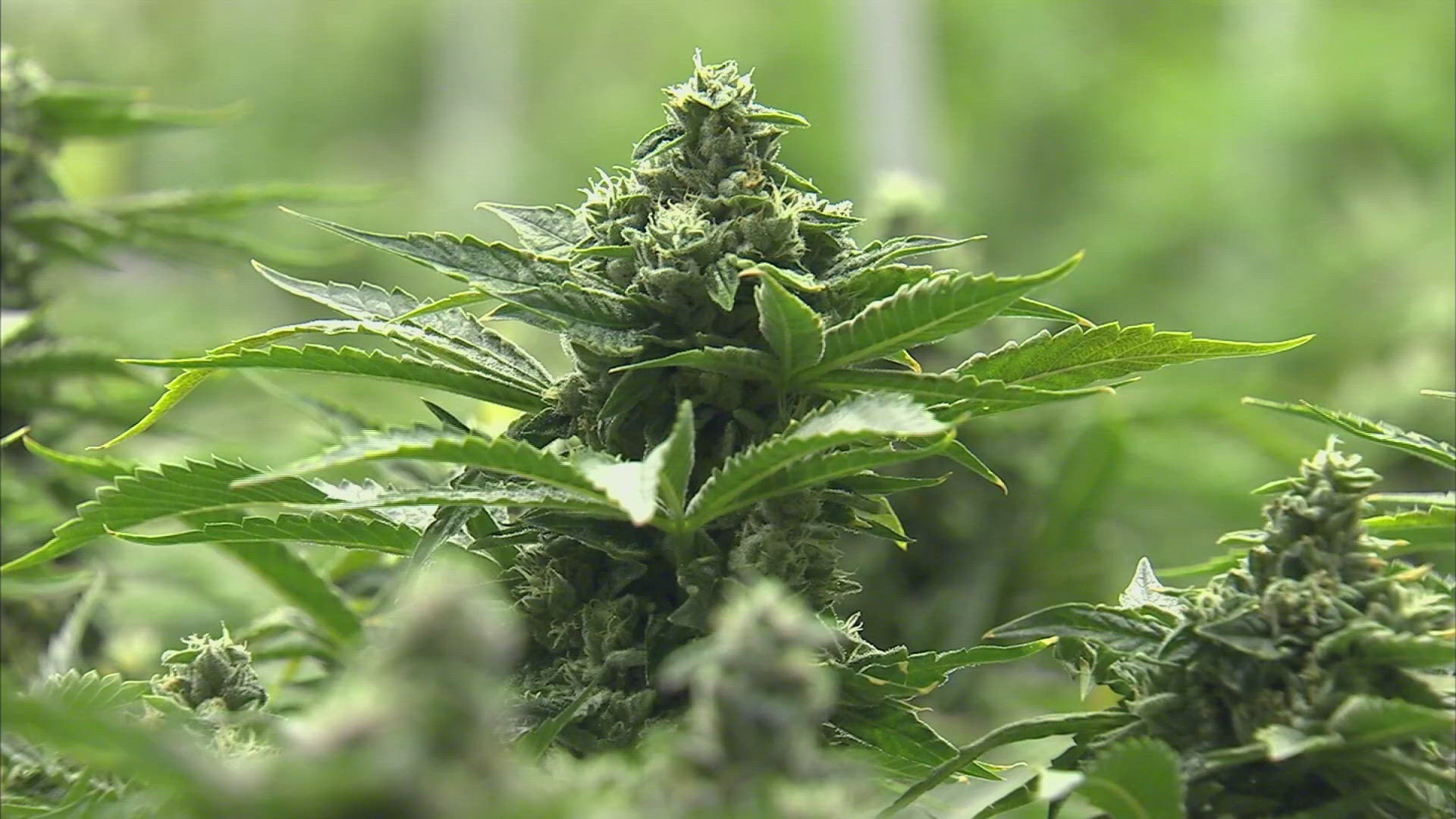INDIANAPOLIS — Legalizing marijuana has been a hot button topic in Indiana for a long time.
Now, the Justice Department will move to reclassify marijuana as a less dangerous drug. This is a historic shift in generations of U.S. drug policy.
In a video message Thursday, President Joe Biden applauded the Justice Department for moving to make marijuana a lower-risk drug.
"Far too many lives have been upended because of failed approach to marijuana," Biden said.
We wanted to know how this impacts Indiana.
Under Indiana law, anyone caught possessing or distributing marijuana could be fined thousands of dollars and spend time in jail because pot is listed as a Schedule I drug.
Schedule I includes other drugs like heroin.
The DEA is looking to move marijuana to Schedule III, which at the federal level, would acknowledge the drug's medical benefits.
We reached out to U.S. Attorney for the Southern District of Indiana Zach Myers, who had no comment and referred 13News to the DOJ's news release.
Marion County Prosecutor Ryan Mears and several Indiana lawmakers, who have been pushing for a bill to legalize marijuana, were unavailable Friday.
In an email, IMPD told 13News the DOJ's reclassification does not affect department policy at this time, since state law has not been changed.
Hamilton County Chief Deputy Prosecutor Joshua Kocher said nothing changes "unless or until Indiana follows suit and moves marijuana and THC from Schedule I to Schedule III in the Indiana Code."
Kocher went to say, "If we make that legal change, then there are some significant changes in Indiana criminal law — especially for operating while intoxicated cases."
"We've had studies before, and we have states all around us to tell us what they did, so it's not like we are reinventing the wheel," said Indiana State Rep. Vanessa Summers, D-District 99.
Gov. Eric Holcomb has previously said he will not legalize marijuana until it is federally legalized, and he needs to see more research on medicinal use of marijuana.
Biden said reclassifying marijuana "is an important move toward reversing longstanding inequities."
"It adds to the action we've taken to lift barriers to housing, employment, small business loans and so much more for tens of thousands of Americans," Biden said.
Summers said it will be a long fight come next legislative session.
"I cannot say that I have a positive thought that it will get a hearing in the process because we're looking at 2025, which is a long session, which would be ideal to go through," Summers said.
The full DOJ rescheduling process could take anywhere from several months to up to a year to complete.

